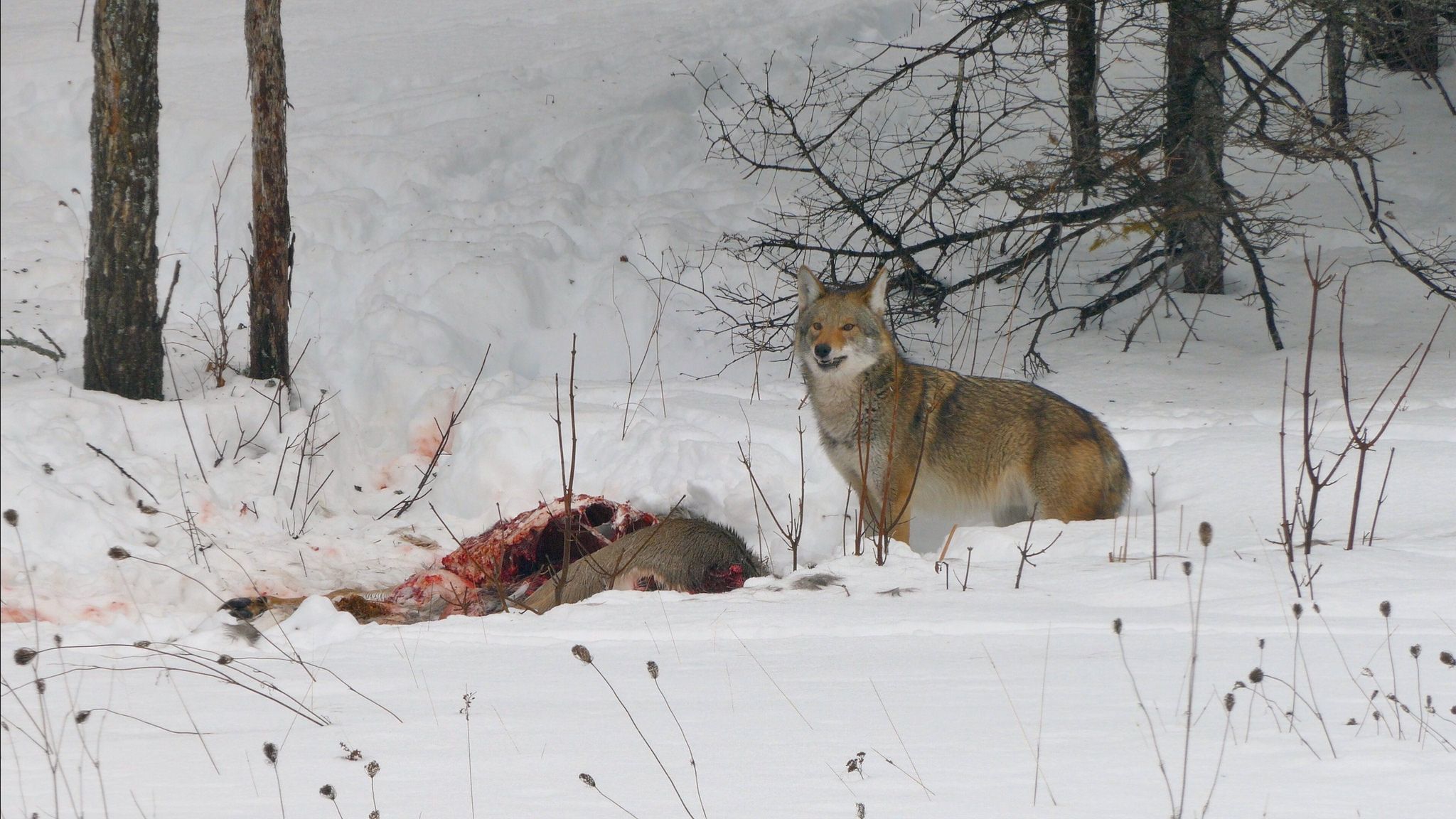
Wolves and coyotes live alongside one another in the United States. Sometimes they even mix—and that may improve their chances of long-term survival.
Coyotes, wolves and dogs are all interfertile, meaning that if they mate, they can make puppies that in turn can make even more mixed puppies. Unlike mules and other hybrids of more distantly related animals, coy-wolves, wolf-dogs and coy-dogs can breed again. You might even encounter "canis soup," which is a (sometimes indistinguishable) mash-up of all three animals.
Interbreeding could technically lead to the extinction of a species. If one attempts to preserve the gray wolf, and finds that there are only wolf-coyote hybrids in an area after a few generations, is that success in preserving gray wolves?
On the other hand, hybridization can be beneficial for the offspring. For starters, having genes from more varied parents produces hybrid vigor, or heterosis, meaning an organism gets more adaptive genes from one parent or another. When gene pools get too narrow, the opposite effect is seen—inbreeding depression.
Hybridization is not always ideal, though. Consider the enormous ligers, which face problems such as reduced fertility and genetic defects. Also, infertile hybrids take resources from other animals that could actually benefit a population's proliferation. If a jack donkey is released into a population of ponies, the next generation is likely to include ponkeys, which very rarely are able to breed.
There are several things that can keep two similar groups of animals from mating: their geographical ranges, their reproduction cycles not matching up, their mating rituals or preferences, or their size. That's how a separate population becomes a subspecies, a subspecies becomes a species and, after millions of years, how two populations can be too different to breed.
However, animals can go back and forth, separating from their cousins and then coming back and hybridizing again. Increasingly, it appears that this practice is simply a part of many species' strategies to help their offspring survive.
It's not just canids that hybridize. As climate change drives grizzly bears farther north, they mate with polar bears. The "grolar bears" or "pizzlies" are more adapted to ice-free terrain, but are big and light-colored like polar bears. Big cats like lions, jaguars and leopards have also hybridized during their shared lineage, according to recent genetic analysis. Even early humans were known to mate outside their groups.
By becoming wolf-like, canis-soup animals are larger than their coyote parents, and more likely to hunt in packs, like wolves. They also have the advantage of possible legal protection. There are very few restrictions on coyote hunting: In much of the country, you can kill as many coyotes as you want at almost any time of year. (In Massachusetts, you can even shoot the eastern coyote from inside your house.) But wolves have historical protections, and several state wildlife laws restrict the practice of killing them.
The hybridization of coyotes and wolves can create confusion for hunters who want to harvest only the legal species. But this new adaptation may help the pups of coyotes take shelter under the umbrella of legislative protection for wolves.
Uncommon Knowledge
Newsweek is committed to challenging conventional wisdom and finding connections in the search for common ground.
Newsweek is committed to challenging conventional wisdom and finding connections in the search for common ground.
About the writer
Kristin is a science journalist in New York who has lived in DC, Boston, LA, and the SF Bay Area. ... Read more
To read how Newsweek uses AI as a newsroom tool, Click here.








